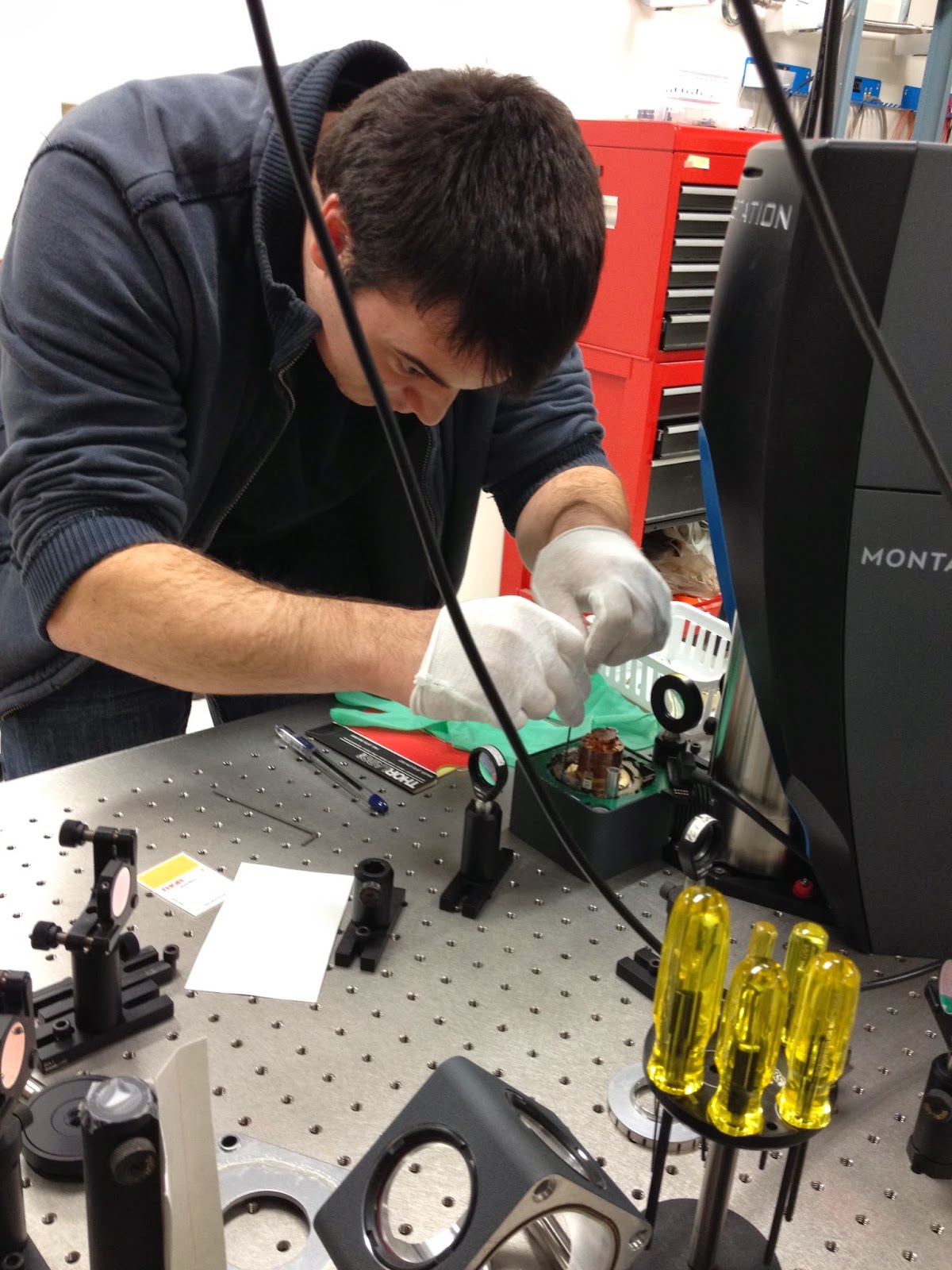I was watching a
TedxWaterloo Talk on Quantum Computing by Ray Laflamme when I first became
fascinated with applications of quantum computing. The concepts were unlike
anything I was familiar with and I soon found myself searching for more talks
and literature on the subject to better my understanding. After taking a course
on optics last semester, I became aware that my professor was very experienced
in the field of quantum science and quantum information. After expressing my
interests, Dr. Tian agreed to mentor my research project for the fall semester.
My
research project has given me the opportunity to explore and expand my
knowledge in modern optics, as well as, allowed me to explore the fundamentals
of quantum optics. This project has also given me a firsthand glimpse at the
real aspects of research, such as the application process for funding and the level
of dedication to thought and computation. I intend on pursuing a doctorate
degree in physics and I believe the experience I am gaining as a result of this
opportunity, will prepare me for a research intensive graduate program.
This project involves building and running many
simulations. Several hours a week are spent either working out the calculations
by hand to verify their accuracy, or running simulations and adjusting
parameters to see how the system behaves. If I cannot figure out how I should
approach a calculation, I head to the library to find a reference that will
give me a starting point. When I have made some progress on a task, I plan to
meet with my mentor to discuss the next step or review my methods to make sure
they are correct. I also run tests on
the lab’s Cryostation while working on the simulations, since a single cool
down can take several hours.
One thing I learned this week, and will never take
for granted again, is that nothing is as simple as it appears in textbooks. I
have been warned of this before, but you do not thoroughly understand the
concept until you actually apply the knowledge you have learned to a realistic
scenario. Textbooks are a great starting point; however the concepts must be
tailored appropriately to fit realistic parameters.

